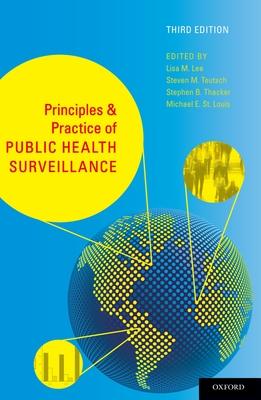Public health surveillance is the systematic, ongoing assessment of the health of a community, based on the collection, interpretation, and use of health data. Surveillance provides information necessary for public health decision making and interventions. In the third edition of Principles and Practice of Public Health Surveillance, the editors present an organized approach to planning, developing, and implementing public health surveillance systems in response to the rapidly changing field of public health. Substantially revised and expanded on, this edition continues to examine further the expansion of surveillance of disease and health determinants, as well as the recent advances in data management and informatics. Major sections of the book focus on bioresponse and preparedness, risk behaviors, and environmental exposure, while the ethical considerations and policy justification for public health surveillance are also explored.
Drawing largely from the experience of the Centers for Disease Control and Prevention and other experts in the field, this book provides an excellent framework that collectively improves the surveillance foundation of public health. It will continue to serve as the standard text in the field, an invaluable resource for public health students and the desk reference for public health practitioners.
| FindBook |
有 1 項符合
Principles & Practice of Public Health Surveillance的圖書 |
 |
Principles and Practice of Public Health Surveillance 作者:Lee,Lisa M.,M.D.,M.D./ St. Louis,M.D./Teutsch,Michael E,Stephen B.,Steven M./Thacker 出版社:Oxford Univ Pr 出版日期:2010-08-26 語言:英文 規格:精裝 / 443頁 / 3.2*15.2*25.4 cm / 普級 / 單色印刷 / 再版 |
| 圖書館借閱 |
| 國家圖書館 | 全國圖書書目資訊網 | 國立公共資訊圖書館 | 電子書服務平台 | MetaCat 跨館整合查詢 |
| 臺北市立圖書館 | 新北市立圖書館 | 基隆市公共圖書館 | 桃園市立圖書館 | 新竹縣公共圖書館 |
| 苗栗縣立圖書館 | 臺中市立圖書館 | 彰化縣公共圖書館 | 南投縣文化局 | 雲林縣公共圖書館 |
| 嘉義縣圖書館 | 臺南市立圖書館 | 高雄市立圖書館 | 屏東縣公共圖書館 | 宜蘭縣公共圖書館 |
| 花蓮縣文化局 | 臺東縣文化處 |
|
|
圖書介紹 - 資料來源:博客來 評分:
圖書名稱:Principles & Practice of Public Health Surveillance
|











